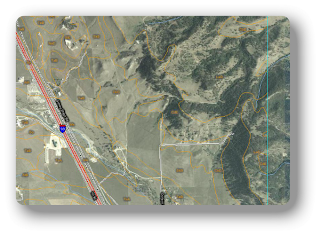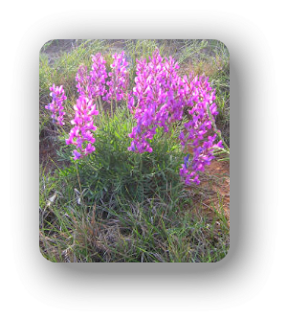by Lee Alley.
Find your Black Hills dream home at Rapid City Search .com
The Very Best Sources of Information About Vacant Land and Horse Properties
Buying an acreage or a hobby farm? Do you know where to get the absolute best information to help make a smart investment?
My clients and I have learned (sometimes the hard way) that buying rural acreages or homes for horse property, ranchette or hobby farm should be a lot more like a school research project than a shopping-cart transaction on Amazon.com. Without going in to all the details  here I'd just like to say that I've learned (there's that "the hard way" again) you, the buyer, have a lot more homework to do on your own, the risks are often higher, and the transaction is potentially far more complex than just buying a suburban home. Yes, I mean that. When I started out investing in these kinds of rural horse property acreages I just figured, hey, what the heck, it's just a bunch of dirt and how complicated can that be. Well, ya know? A lot more complicated!
here I'd just like to say that I've learned (there's that "the hard way" again) you, the buyer, have a lot more homework to do on your own, the risks are often higher, and the transaction is potentially far more complex than just buying a suburban home. Yes, I mean that. When I started out investing in these kinds of rural horse property acreages I just figured, hey, what the heck, it's just a bunch of dirt and how complicated can that be. Well, ya know? A lot more complicated!
So, what are you going to do about that? Simple, do your homework. I call it "deep dilegence."
 Early on, I was a scientist, a physicist to be exact. Then an engineer who did computer models of business operations and environmental economics with online databases. And, with a masters degree in statistics, believe me, I know how to go down to the lab and dig deeply for data then go analyse it, verify it, cross-check it, challenge it, beat it up, massage it, then hang it out to dry. And after buying a few horse properties, it's been truly humbling. It takes all my background to conduct an appropriate depth of research in to what might go right or wrong with a hobby farm or farmette real estate investment.
Early on, I was a scientist, a physicist to be exact. Then an engineer who did computer models of business operations and environmental economics with online databases. And, with a masters degree in statistics, believe me, I know how to go down to the lab and dig deeply for data then go analyse it, verify it, cross-check it, challenge it, beat it up, massage it, then hang it out to dry. And after buying a few horse properties, it's been truly humbling. It takes all my background to conduct an appropriate depth of research in to what might go right or wrong with a hobby farm or farmette real estate investment.
But the key part is not knowing all those fancy data processing tools. The key part is just the shoe-leather grind of collecting a lot of information about a property, then applying plain old mental elbow grease to rationally (not emotionally) evaluate all that information.
So the key question is, "Where can I find the best information on buying Black Hills horse property real estate?" Well, I'll share with you most of the must-have sources I rely on daily, in advising my real estate investment clients. I hope you will make extensive use of this information, too:
- USGS Soils Maps web site
This somewhat difficult web site provides valuable details on types of soil, with maps. Great for examining ecomonic value of grass-production, soil expansion issues for basements, or 10-lb bricks of black mud on your grandchildrens' boots.
- Soils Testing Laboratories
We have soil testing labs in Brookings and Sioux Falls. And there are several more in surrounding states. If you want the dirt on your dirt, it can't hurt the dirt (or your horses) to get it tested.
- SDSU Plant Diagnostic Clinic
Yeh, sure, that acreage with the beautiful sunsets and convenient access has a lot of green grass and other plants. But not so fast. Selenium poisoning in horses, although unusual, can be a real drag. This can come from chronic toxicity, or "alkali disease." Some of our indemic plants, like purple locoweed, milk vetch, and prince's plume tend to naturally draw selenium from the soil and store it. When these plants green up in the spring before the more favorable grasses appear, your horse can also accumulate a toxic level of selenium. If in doubt get help from SDSU's plant clinic.

- Your County's GIS (Geographic Information System)
Most counties maintain an online access to their map of who owns which properties, their mailing address, the approximate land boundaries, tax bills. Some offer it free to the public, but I pay up to $150+ per year to some counties who use it as an income source. This is indespensible for anyone searching for rural land to invest in, whether there's homes and barns on it or not.
- Your County's tax assessment and taxes-paid records
This serves three purposes. Has the land enjoyed a (greatly reduced) ag-tax rate? What taxes should you anticipate? Is the owner paid up?
- Your County's Register of Deeds
This is where the real covenants are found. Don't simply rely on a document someone gives you. Never, ever, not for a moment. The only covenants the courts will enforce are what's filed with the County Recorder, and not expired yet, including some difficult-to-find number of amendments over the past 20 years. The copy your seller has from 1993 are interesting history, but they are not today's "Covenants" unless the County Recorder (and maybe even your lawyer) says they are.
- Your County's regulations on hoofed-animal density, septic density, driveway entrance configuration:
Short or reading 1,000's of pages of minutes from County Commission Meeting minutes, county ordinances, etc, and with the eye of a trained professional, I don't know a quick and easy way to handle this. Call a professional. Don't risk it.
- Covenants Documents
Just for emphasis. This is both complex and absolutely relevant, if not a deal killer for your land purchase. See above.
- Your state's laws on covenants-enforcement, animal-boarding, real estate, fences, water rights, wind towers, animal vaccinations, interstate transport of feed and animals, Section-line public-access easements (ouch!), firearms discharge, trash burning, ...
- National Forest Service regulations on using only designated horse-trail routes (get a map). Don't just assume you can ride out your back gate into the forest like Gene Autry did. Also check on rules regarding your farm animals getting loose (e.g., potentially diseased rams from your farm mating with mountain goats, deer). The Forest Service gets real testy about who dates their forest critters, and they get downright violent about unplanned blind dates. You'll want to know about rules on "Certified Weed-free" hay you bring in your horse trailer to a trailhead inside the National Forest (or even if you just transit a National Forest, or just thinking about driving hay into a National Forest). On the other hand, if you know and respect their rules, then please do invest the extra money in a horse property for ranchette adjoining the National Forest boundary. These national forests are the very best value available anywhere, for those of us lucky enough to live next to the National Forest. Besides, it generally makes smart investment in acreages for great price increase and re-sale value later.
- Past-sales records from your realtor's local MLS system
Your real estate Buyer Agent will have access the public does not have, to historical records of what comparable properties have sold for, and what else is now available perhaps not even publicly listed.
- Your state's central repository of mandated logs of wells drilled (i.e, your neighbors' wells)
The Black Hills is an arid region. Water is adequate, but precious. Water wells for individual homesteads is a big thing here. No two wells are alike. Do your homework! Since 1974 all South Dakota well drillers have been required to file a log of when and where they drilled a water well, who paid for it, how deep, which layers/types of rock and soil they penetrated at what depths, how much water flowed and for how long, and how far down the hole in the ground is the top of the water (static water depth). The State has records on your neighbors' wells, so you can check on "the Jones's" before you invest (a-hem... gamble) the $35-$45 per foot hunting down the top of the water table. (Did you catch that? Yep. Consider this: A 1,000 foot well can double(!) the nominal cost-per-acre of a 10-acre horse property. That is, if you're lucky enough to hit water by 1,000 feet. Some fine wells, though, are only 100 feet. Still, water wells aren't for sissies.)
- The hydrogeology-profile studies
I make extensive use of a massive study of the hydrogeologic profile of the Black Hills. Our underground layers of rock are our version of east coast water towers.
- Local school district's "attendance zones" maps (i.e., boundaries)
Where your kid will go to school can be an emotionally charged valuation aspect of a property. I use these maps for clients a lot. School districts and the counties who collect property taxes to support them, can be understandably sensitive. In any case, I like to know whether or which school district will want the road past a property that is for-sale to be plowed in winter for school buses (and my clients).
- County/State Highway Department plans for road construction/disruption or worse, re-routing.
- County-City agreements on shared jurisdiction on county-zoned General-Ag, Light-Ag, Residential, etc.
We have city zoning. We have county zoning. Around Rapid City there is a 3-mile overlap of jurisdictions. Do your homework, both to assure your hobby farm's pot-belly pigs will be welcome, and also to check whether that adjacent pristine acreage is zoned for heavy industrial or a strip mall. - SD State University's iGrow ™ Program
These professors and staff in the College of Agriculture are a valuable and delightful team to work with. They know their stuff inside and out, and they really do enjoy helping people like us. You do not need to be a big time rancher. In fact, their iGrow program has a service that specializes in "small acreages" (aka, horse property, hobby farm, ranchette, farmette, land for retirement investment,...). They also run the speical program for certifying specially trained realtors in the examination of rural acreages and horse properties.
- A SDSU/iGrow-certified "Advisor in Country Real Estate." A small handful of us agents, maybe a dozen or so, out of around 400 agents in the Black Hills, have completed a special training program by SD State University's College of Agriculture in "Advisor in Country Real Estate (ACRE)."
This is all I can recall for now, just offhand. I'll add more references tot he list as daily business reminds me of other sources. If you know of some I've left out, could you please add them in comments responding to this article? Then I'll keep a running list of the whole kaboodle.

For now, though, don't you agree? Buying rural farm land or horse property can be more like a school research project than a click-and-pay purchase on Amazon.com!

Comments(3)